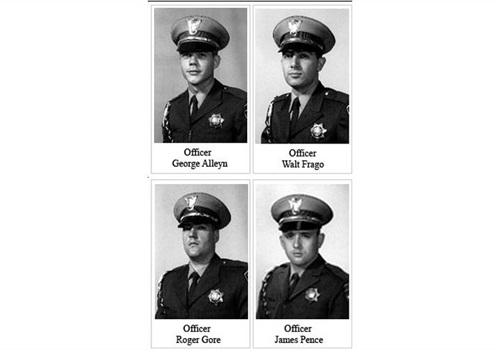Something has gone out of vogue in recent years, and this is the application of common sense. This can be applied to techniques, patrol procedures, outrageous statements issued by individuals of dubious character, and pretty much life in general.
Everyone seems to have an opinion on everything these days and while some might possess a degree of merit, others patently do not. I grew up in an era of common sense. The 1950s, 60s and yes, even the 70s required that common sense be applied to everyday life.
If you stopped on the tracks of an oncoming train, you knew bad things would happen. If you walked on semi-frozen lake ice, you’d probably go in at one point or another— common sense led one to such a conclusion.
 If you unjustifiably beat a suspect when an air unit is directly overhead, you’re probably in deep trouble. Pull off an unjustifiable use of force with a crowd looking on, and common sense dictates you’re probably being filmed. Drop evidence where it shouldn’t be, then you’re deep into it. Lie about your involvement in an incident and I can guarantee you it will be uncovered. Try to cover up mistakes with dishonesty, then no one possessing any degree of credibility can possibly defend you. Common sense is applicable in all such situations.
If you unjustifiably beat a suspect when an air unit is directly overhead, you’re probably in deep trouble. Pull off an unjustifiable use of force with a crowd looking on, and common sense dictates you’re probably being filmed. Drop evidence where it shouldn’t be, then you’re deep into it. Lie about your involvement in an incident and I can guarantee you it will be uncovered. Try to cover up mistakes with dishonesty, then no one possessing any degree of credibility can possibly defend you. Common sense is applicable in all such situations.
Dancing around in circles with a firearm pointing in all directions like a frog on a hot plate after each and every shot is fired doesn’t make much sense—especially when there is only one suspect. Unless ISIS members are pouring over the walls in great numbers, a single suspect is simply one person. Common sense is one thing—marketing spin is another.
Vociferously stating one’s misguided opinions on all things tactical defies common sense when you’ve only taken two classes. (A little bit of knowledge is indeed dangerous.) Stating that the firearms safety rules don’t apply to you after you’ve improperly violated those very safety protocols and shot someone unjustifiably doesn’t make much sense either.
When someone relates that they’ve performed enough tactical operations in “Black Ops” to fill an encyclopedia, but can’t tell you whom they were with or when such fantastical operations occurred, this doesn’t pass the common sense test. They’re liars. The real ones won’t even talk about it.
Common sense application means one realizes that no amount of fancy gadgets (mud flaps and whip antennas) on your weapon can replace solid and practiced fundamentals.
Common sense dictates that if your Facebook page denotes you are the minister of death and destruction, you will most certainly have insurmountable obstacles in the discovery phase of your trial. Website pages replete with skulls and winged merchants of death will not serve you well either. Juries don’t look favorably upon such images. Common sense requires that professionalism and not braggadocio should be the rule of thumb.
Common sense means that not every little detail of your life should be filmed, recorded or posted. Humans make mistakes, and innocuous foibles can come back to haunt you. Besides, not everyone cares about every detail of your day.
Common sense dictates that if a member of the opposite sex tells you they’re nothing but trouble, they probably are. Many police officers will completely disregard this rather salient point and plunge headlong into a fiery Kamikaze death spiral of a relationship anyway—although these situations do make for great stories.
Common sense means that if you sense something’s wrong, it probably is. Overriding such an instinct will most probably not work out in your favor. An individual with two years’ experience does not have the same amount of insight as one with 40 years’ experience (all things being equal), so once again, common sense.
If something sounds too good to be true, it probably is, although many will continue to counter this philosophy, which is why scammers, charlatans, and confidence men are so successful at their games.
It would be nice to put common sense back into the equation as it regards police work, tactics, and overall patrol procedures. Ask for the rationale behind certain techniques. Query when and where such a technique or particular item has been employed in the field. It has to have been utilized a number of times in a documented format to bear any sense of validity.
Perhaps if we put common sense back into the equation, many of the recent well-publicized incidents will cease to occur.





